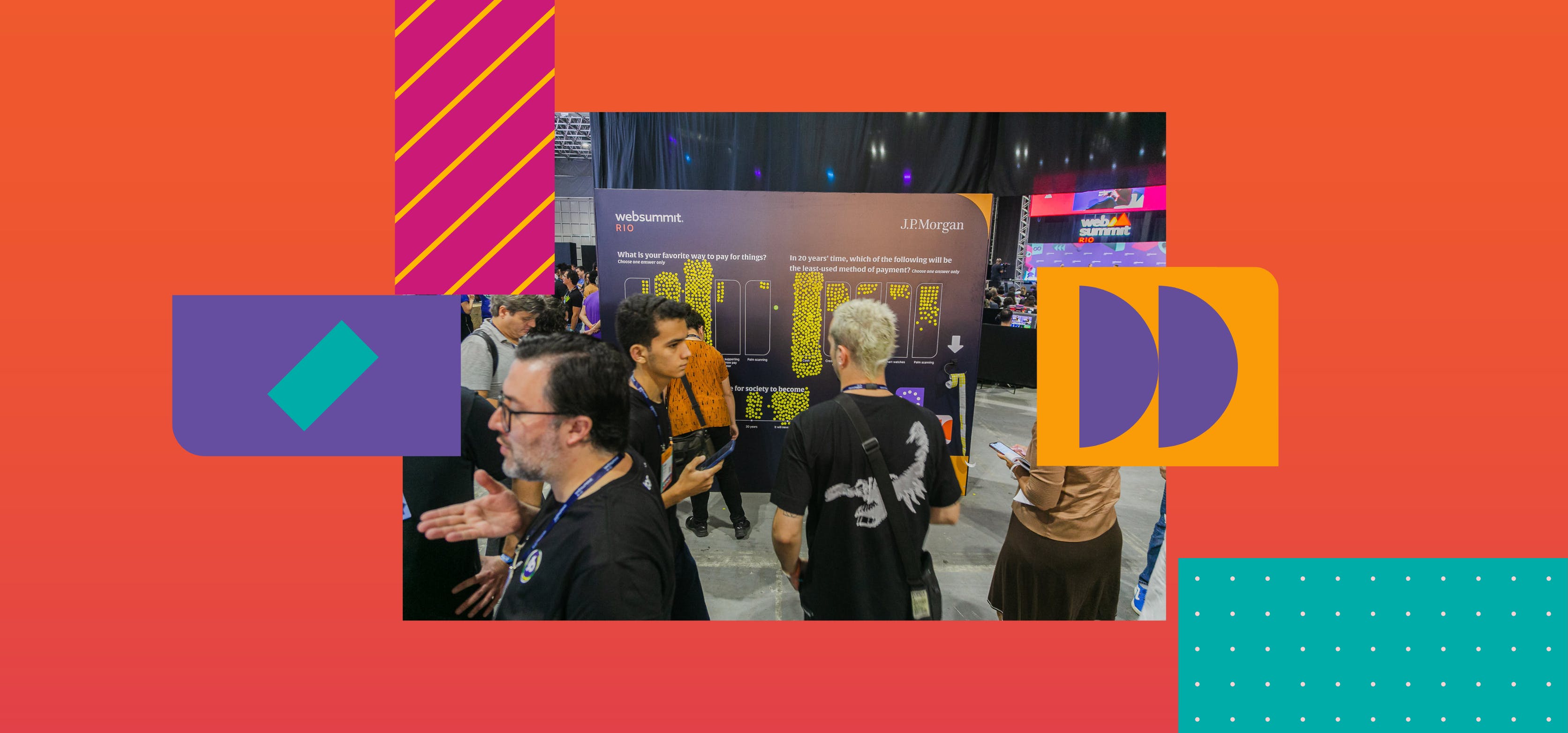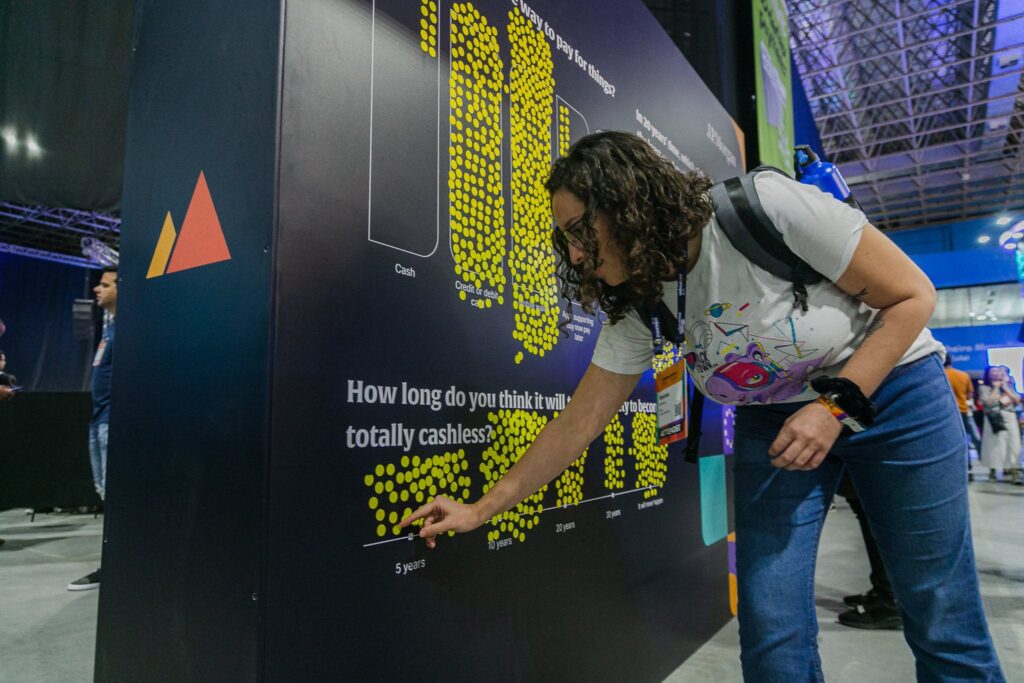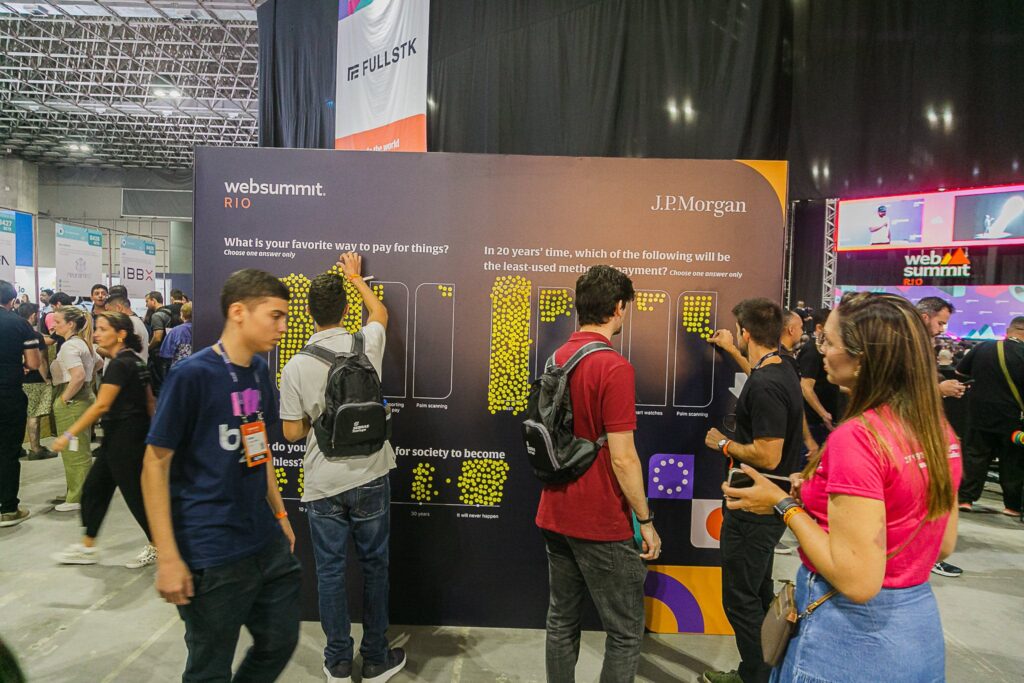
J.P. Morgan survey: 98.5% favor digital payments over cash

At Web Summit Rio 2023, J.P. Morgan interviewed hundreds of attendees about the future of payments. Here’s what they found.
Web Summit Rio gathered 21,367 attendees from around the world. Each attendee brought their own unique opinions and experiences to the event. Our partner, J.P. Morgan, chose to survey them about the future of payments.
The debate about the future of cash was accelerated by the onset of the pandemic. But is the decline of cash overstated? And what new technologies are rising to take its place?
These are just some of the questions J.P. Morgan brought to our attendees:
What is your favorite way to pay for things?
Attendees were given five options – cash, credit/debit card, mobile wallet, buy-now-pay-later apps, or palm screening. By far the most popular answer was mobile wallet, which had more votes than all the other options combined with 411.
The next most popular vote was credit/debit card on 229. Trailing far behind with the least popular votes were buy-now-pay-later apps with 12 votes, cash with 10 votes, and palm screening with eight votes.
Out of 670 total votes, 660 people favored a digital payments solution – roughly 98.5%. Palm screening is the most unpopular choice for the future of payments after cash, which raises serious questions about consumer enthusiasm for the new technology.
In 20 years’ time, which of the following will be the least-used method of payment?
Attendees were given the same five options as above to choose from. Once again, there was a clear answer, with cash receiving 353 votes. This continues the trend of the previous question – that people have little confidence in the continued utility of physical currency.

Image of the J.P. Morgan content survey wall at Web Summit Rio Image: Aldo Barranco/Web Summit ((CC BY 2.0))
In a distant second was palm screening – still a relatively unpopular choice of payment method – with 54 votes, followed by credit/debit cards with 51 votes. Earning the least votes (the most likely to survive) were buy-now-pay-later apps with 21, and mobile wallets with 16.
With 497 votes, 71 percent of respondents believe cash will be the least-used payment method in 20 years.
How long do you think it will take for society to become totally cashless?
Attendees were given five options to choose from – 5 years, 10 years, 20 years, 30 years, or never.

Image of the J.P. Morgan content survey wall at Web Summit Rio Image: Aldo Barranco/Web Summit ((CC BY 2.0))
With a total of 483 votes, most attendees believe society will become cashless in 10 years, with 162 votes. Interestingly, however, the second largest number of respondents believe that society will never become cashless, with 151 votes.
Following these, with a significant drop, were 20 years for society to become cashless with 68 votes, 5 years with 62 votes, and 30 years with 40 votes. In total, 68.7% of respondents believe that society will become cashless in the next 30 years.
If you want to find out more about the future of payments, check out J.P. Morgan’s Payments Unbound publication, in collaboration with Wired.
Main image of J.P. Morgan’s content survey wall: Aldo Barranco/Web Summit ((CC BY 2.0))



